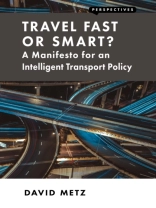Britain does not have a coherent transport policy, and conventional transport economics has reached a dead end. A transport policy should incorporate systematic thinking about the travel needs of society, but in Britain public investment in the transport system has been extraordinarily volatile. We closed underused railways and then experienced a doubling of passenger numbers, prompting huge new investment. We gave up making substantial investments in motorways, but we have now ch...
Britain does not have a coherent transport policy, and conventional transport economics has reached a dead end. A transport policy should incorporate systematic thinking about the travel needs of society, but in Britain public investment in the transport system has been extraordinarily volatile. We closed underused railways and then experienced a doubling of passenger numbers, prompting huge new investment. We gave up making substantial investments in motorways, but we have now chosen to revive the road construction effort in a big way. We vacillate on road pricing, introducing congestion charging successfully in London but backing off elsewhere because of local opposition. We have delayed the decision about whether and where to build additional airport capacity for decades. This mess has come about because policy has focused on big construction projects and time savings when it should have been focusing on the part that people and places play in economic development. This book sets out the principles that could underpin a strategic policy for transport. Instead of focusing piecemeal on getting from place to place ever faster, we need to think about how and where we want the economy to develop, and about how new digital technologies can help us achieve what is needed.












